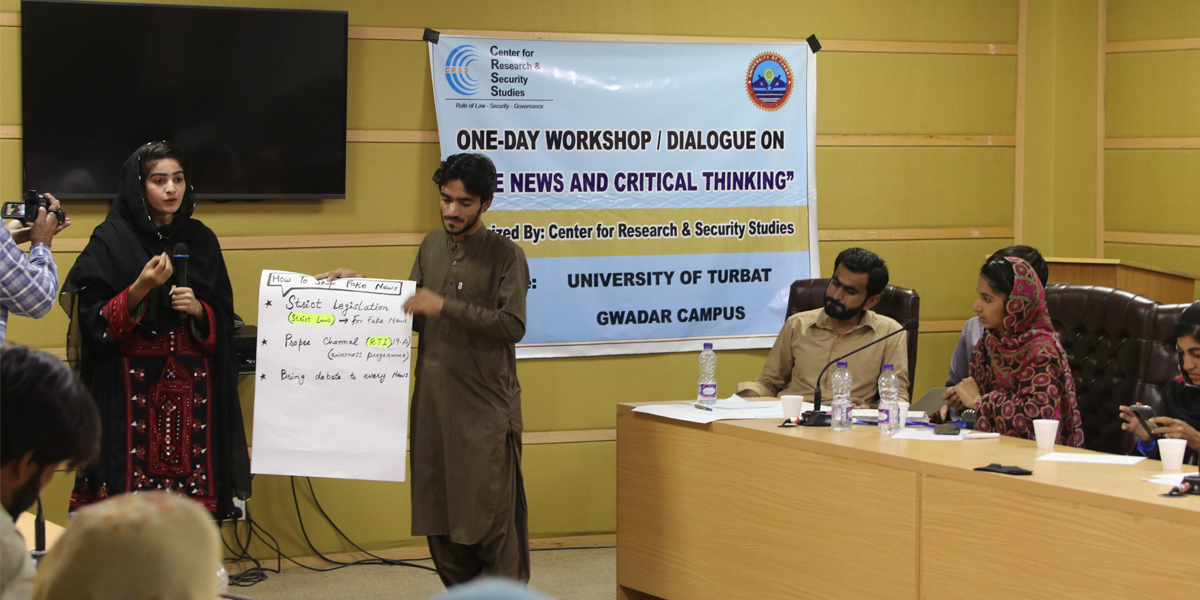On 12th October, 2021 CRSS held a session at University of Gwadar on critical thinking and fake news where the students, along with faculty members, were apprised about media ethics and its applications in this digital and technical world.
Critical thinking is a pivotal aspect in problem solving and acts as a universal remedy for any unfathomable obstacle. Critical thinking helps us in making better decisions. There’s no doubt about the fact that critical thinkers make the best choices. Critical thinking helps us deal with everyday problems as they come our way, and very often this thought process is even done subconsciously. It helps us think independently and trust our gut feeling.
Critical thinking is one of the most desirable skills, as it helps us analyze information and think out of the box. It can solve any clustered problem with innovative solutions and a systematic plan.
The second session was about fake news, it had a great impact on our thinking about fake news. False information means creation of news, stories, or hoaxes to deliberately misinform or deceive readers. Usually, these stories are created to either influence people’s views, push a political agenda or cause confusion. The seminar educated us on the use critical thinking in identifying fake news.
CRSS’ sessions on cognitive development, conceptual learning, and community development have great implications on teaching and learning of the students and faculty members of the Gwadar Campus. The session discerned that curriculum and textbooks do not properly distinguish Islamic education, citizenship and civic education. Similarly, the teaching and learning practices do not produce critical thinkers, who develop their social consciousness to the extent that they become the agents of social change. Where there is a lack of shared understanding about the citizenship education and being critical. The session encouraged students to have a clear background about these matter of concerns in Balochistan especially in Gwadar, where no importance is given to the subject. Furthermore, such programs bring clear and effective conceptions in theories and practices by transforming the vision of education into productive themes and making it visionary and missionary.
Jaweria Nabi Bakhsh
8th semester
Computer science Department
University of Turbat Gwadar

We attended a seminar about critical thinking organized by Center for Research Security Studies (CRSS).
The session was quite informative and boosted students’ confidence level and encouraged them to share their ideas and thoughts about critical thinking. Such seminars are beneficial for students as they give them a lot of knowledge and information. Students get opportunities to build up their confidence in front of audience. Such sessions should be conducted regularly so that students can educate themselves and go ahead in a better way.
We learnt about critical thinking, how a person can think critically in different situations. Lack of critical thinking is one of the reasons behind people’s increased involvement in crimes. It is a deeper kind of thinking in which we do not take things for granted but question, analyze and evaluate what we read, hear, say and write. It is a general term to identify essential mindsets and skills that contribute to effective decision marking.
It certainly was one of the most pleasant and informative seminars I have ever attended. I want to Thank CRSS and the guest speaker for organizing this seminar free of cost.

